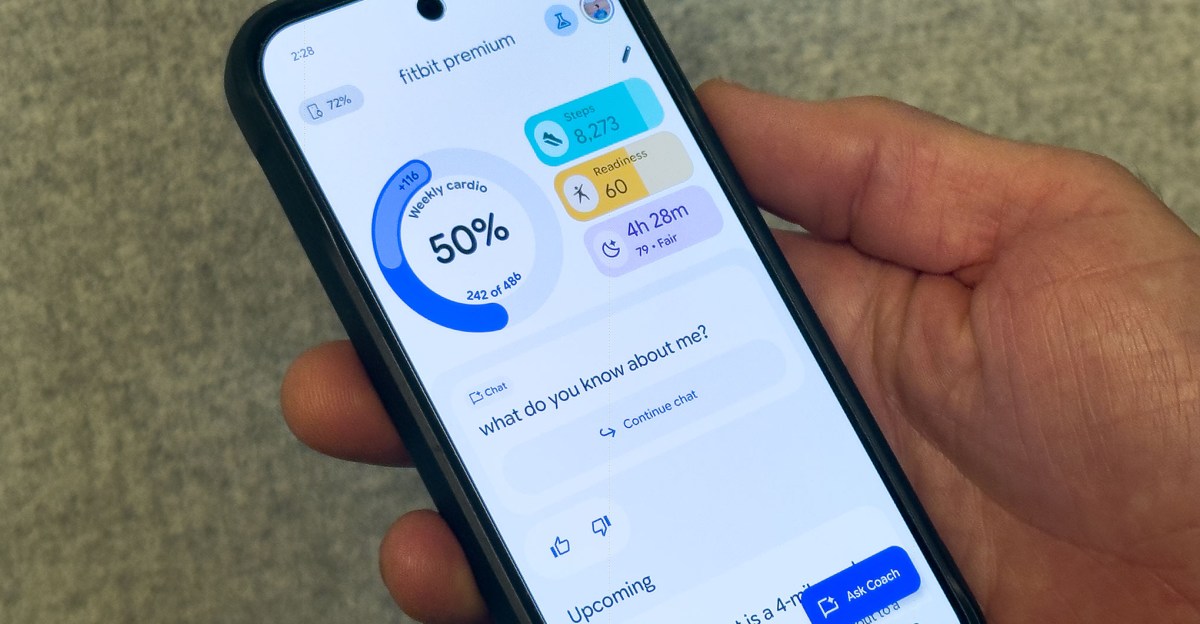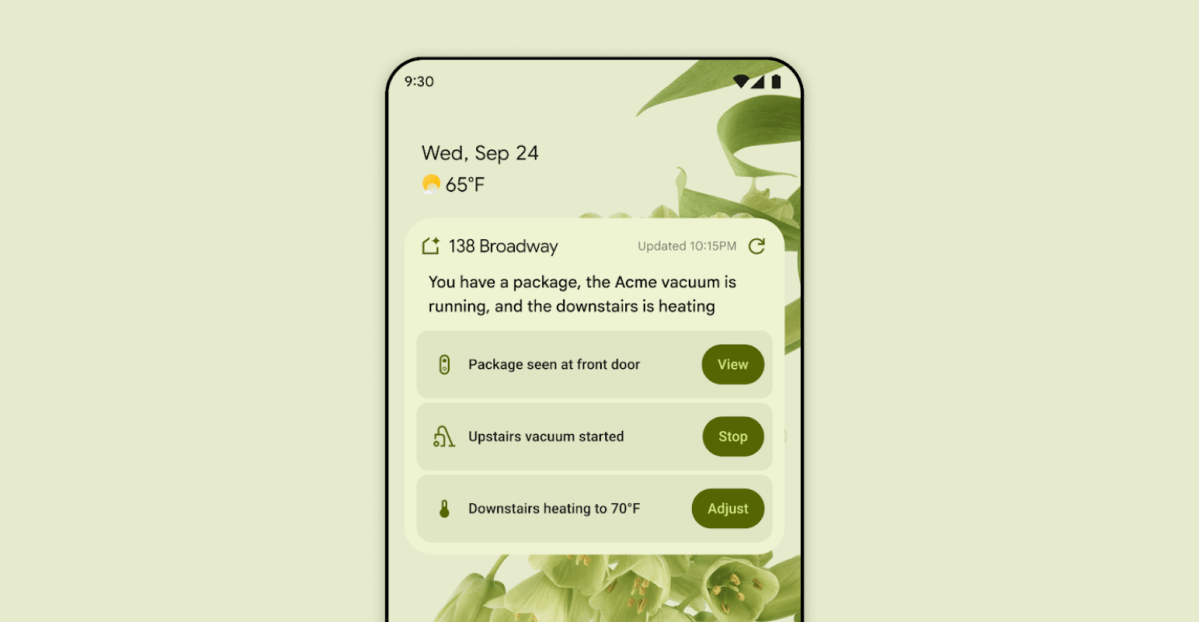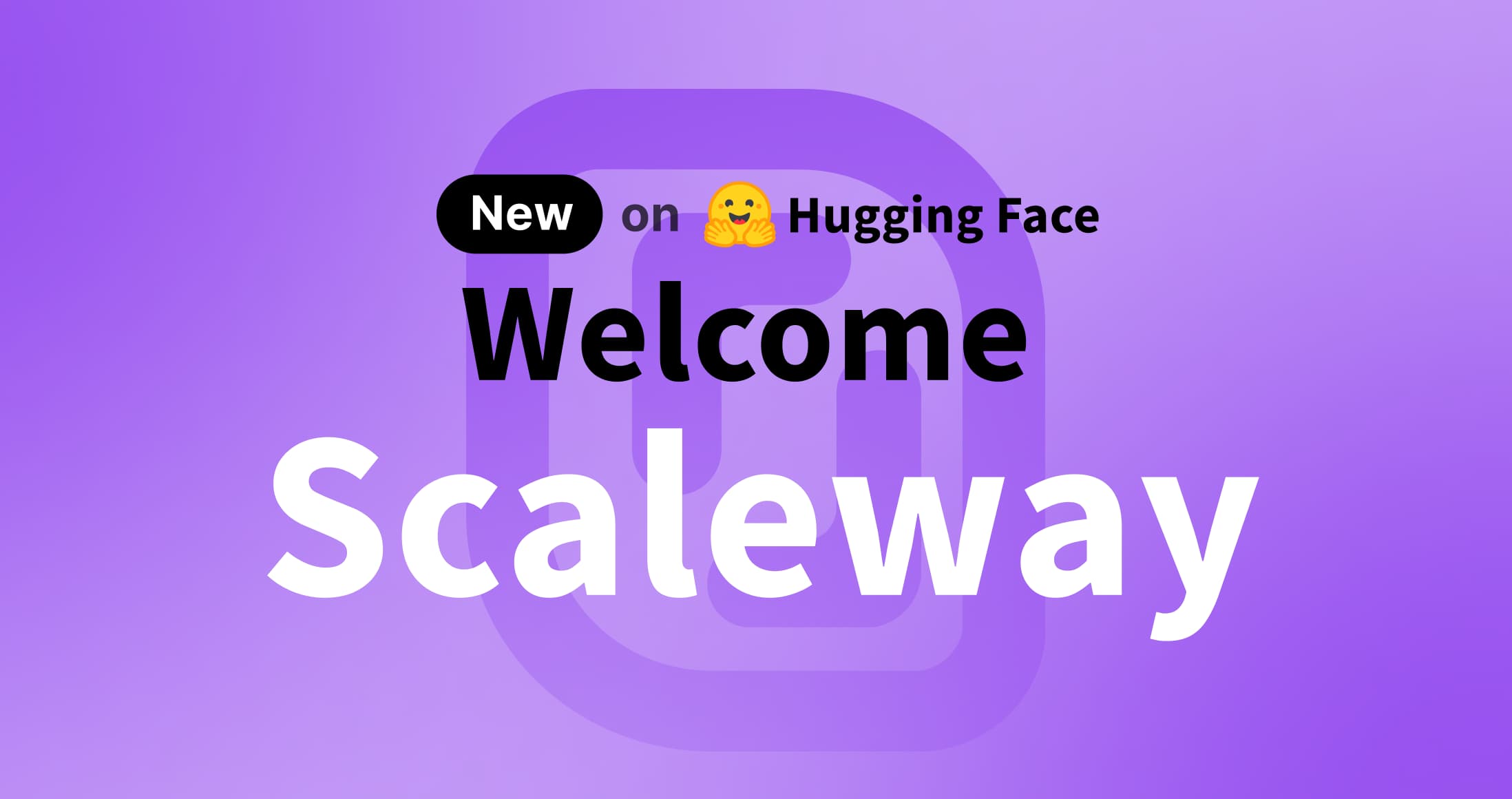
Fitbit’s AI health coach: a context-aware coaching hub built into the redesigned app
Sources: https://www.theverge.com/hands-on/761965/fitbits-ai-health-coach-is-the-first-i-might-actually-be-interested-in, theverge.com
TL;DR
- Fitbit is introducing a redesigned app centered on an adjustable, conversational AI health coach built on Gemini.
- The coach lives throughout the app, offering weekly routines and targets that adapt to real-time data (sleep, activity, etc.).
- It can account for travel, illness, injuries, and new goals, and it can ingest data from Health Connect and HealthKit, with Pixel Watch 4 getting retroactive activity logging.
- The approach emphasizes context and depth over simple, daily metrics, aiming to become a broader connected AI health hub.
- Launch is an opt-in preview for Fitbit Premium users in October; privacy and hallucination concerns are acknowledged alongside potential benefits.
Context and background
The Verge reports skepticism about AI health features in the past, noting that many offerings merely summarize what users already know or provide generic insights that are hardly actionable. Fitbit’s forthcoming AI-powered health coach is described as a complete overhaul designed to move beyond “AI bolted on” features. As described in the hands-on preview, the goal is to embed the AI coach across the entire Fitbit app rather than tacking it on to a few screens. Google’s Andy Abramson frames the effort as echoes of professional athlete coaching, asking whether such coaching could be accessible to everyone. The broader ambition is to transform wearables into a more contextual, coaching-oriented experience rather than a data dump. The Verge explicitly cites statements from Google’s Rishi Chandra about prioritizing depth of insight over short, generic summaries. This context-setting helps explain why Fitbit is reshaping the app around the AI coach rather than offering a standalone feature. In the demo, the coach is portrayed as a chatty companion that can retrieve and interpret personal metrics, then prompt users to engage with topics such as sleep, workouts, or recovery. The narrative emphasizes a deliberate shift away from daily, rigid targets toward a more flexible, weekly coaching mindset modeled after human trainers. The article notes that, while some responses resemble familiar “book report” outputs, there are moments that illustrate real potential when the AI understands a user’s constraints—travel, jet lag, or a recent injury—and tailors guidance accordingly. The Verge underscores the balance the team is trying to strike: provide enough depth to feel meaningful without flooding users with generic tips. The preview also highlights that the platform will be platform-agnostic, capable of accepting data from devices beyond Fitbit hardware.
What’s new
- A redesigned Fitbit app with a prominently integrated AI chatbox in the Today tab, complemented by a new data dashboard and topic-based prompts. This design aims to make AI-driven insights feel actionable rather than merely informational. The coach is described as “built off Gemini” and embedded in every corner of the app, signaling a broader integration strategy rather than a standalone feature.
- Weekly targets and routines replace the prior emphasis on daily goals. Cardio Load is reframed from a daily objective toward a weekly target, enabling more realistic pacing across life events like travel or fatigue.
- Sleep and other health insights are reframed to reflect weekly and long-term patterns, with the coach suggesting adjusted schedules if sleep debt grows or a hard workout requires more rest.
- Real-time adjustment and conversation-driven interactions: the coach can adjust workouts based on recent data (e.g., poor sleep, travel, or a sickness) and check in on energy levels for the day. The app can also address changes like a finger injury by removing or reintroducing strength workouts as needed.
- Data integrations expand beyond native Fitbit data: the AI coach can ingest information from third-party apps via Health Connect and HealthKit, and it is designed to operate on iOS devices as well as Android. Pixel Watch 4 adds retroactive activity logging to ensure past activities aren’t lost if a log was forgotten.
- The feature is described as a step toward a broader “connected AI health hub,” with initial focus on sleep and fitness and potential expansion into nutrition and mental health.
- Launch logistics: when the feature launches in October, it will be an opt-in preview available to Fitbit Premium users and compatible Pixel Watches or Fitbit hardware.
Why it matters (impact for developers/enterprises)
- A platform-wide AI coach represents a shift from feature-level AI to an integrated, coaching-centric user experience. By weaving the AI assistant throughout the app, Fitbit aims to deliver context-rich guidance rather than isolated tips, which could influence future design patterns for health apps and wearables.
- The approach acknowledges the limitations of large language models (LLMs) by prioritizing depth and usefulness over generic summaries. This has implications for how developers balance AI outputs with user trust, ensuring that insights are grounded in personal data and realistic action steps.
- Cross-device and cross-ecosystem compatibility becomes a strategic priority: health data can flow from Health Connect and HealthKit, enabling a broader ecosystem of devices and platforms to participate in the coaching experience. For developers, this could encourage more robust data interoperability and partnerships that hinge on richer, context-aware guidance rather than isolated device ecosystems.
- The shift toward weekly targets and flexible coaching mirrors real-world trainers’ practices and could influence how enterprise health programs frame goals, progress tracking, and adaptive workout planning in consumer-facing apps.
- Privacy considerations are highlighted along with positive expectations: the move to a more capable AI coach raises questions about data handling, model reliability, and user consent, signaling a need for clear privacy controls and transparent AI behavior in health-centric products.
Technical details or Implementation
- The AI coach is described as a chat-centric interface embedded in the redesigned Fitbit app, with a Gemini-based model powering the conversations. The design emphasizes depth of insight over short, generic summaries, aligning with early tester feedback that users want more meaningful guidance.
- The coach is not just a new screen; it is “really baked into every corner of the app,” including the Today tab’s data dashboard and underlying prompts for deeper engagement on each topic (sleep, workouts, etc.).
- Real-time adjustment is a core capability: users can tell the coach about constraints (travel, sickness, injuries) and the coach will adapt suggested workouts and schedules accordingly. A concrete example in the demo shows adjusting a workout to incorporate a Peloton bike available at a hotel.
- The AI’s ability to track trends and propose next steps includes proactive checks, such as asking to verify energy levels after variability in sleep or recovery from an injury, illustrating a conversational flow that blends metrics with user context.
- Data accuracy improvements and activity recognition: the sleep tracking algorithm, which aggregates data from Fitbit devices and Pixel Watches, is described as more accurate. Pixel Watch 4 adds retroactive activity logging, reducing lost credit when a log is forgotten, and users can train the AI to better recognize activities through tagging.
- Third-party data support expands the data pool: the coach can ingest inputs from Health Connect and HealthKit, minimizing the need for users to exclusively track workouts within the Fitbit app and enabling cross-platform data utilization. The module’s platform-agnostic stance means potential compatibility with iOS devices beyond Android.
- The long-term vision frames the coach as a stepping stone toward a broader health hub that could extend beyond sleep and fitness to nutrition and mental health, signaling potential future features for developers and platform teams.
- Launch model and consumer access: the October rollout will be an opt-in preview for Fitbit Premium users; the preview isn’t limited to Pixel Watch 4 and will work with any Pixel Watch or Fitbit hardware, according to the preview notes.
Key takeaways
- Fitbit is pursuing a deeply integrated AI health coach that spans the entire app, not a standalone feature.
- The coaching approach centers on weekly goals, real-time adaptation, and richer, contextual insights.
- Data interoperability via Health Connect and HealthKit broadens the potential data sources the coach can use, with cross-platform compatibility in mind.
- Pixel Watch 4 enhancements, including retroactive logging, help preserve credit for activities and improve coaching accuracy.
- The rollout is an opt-in Fitbit Premium preview in October, with ongoing attention to AI reliability and data privacy.
FAQ
-
What exactly is Fitbit’s AI health coach?
It is a chatbot-based feature built on Gemini that is integrated throughout the redesigned Fitbit app to deliver weekly routines, real-time adjustments, and deeper insights based on personal data.
-
When will it launch and who can access it first?
The feature will launch in October as an opt-in preview for Fitbit Premium users and will work with Pixel Watch 4 and other Fitbit hardware.
-
Can the coach use data from devices and apps beyond Fitbit?
Yes. The coach can take in data from third-party apps via Health Connect and HealthKit, and it is designed to work across platforms (including iOS).
-
How does the coaching handle real-life constraints like travel or injuries?
The coach can be told about constraints (e.g., traveling with limited access to equipment or an injury), and it will adjust workouts and goals accordingly, even suggesting alternatives such as using available equipment like a hotel Peloton bike.
-
What are the concerns with this AI approach?
The Verge notes general concerns about LLMs (hallucinations) and data privacy, underscoring the need for careful handling of sensitive health information and meaningful, trustable outputs.
References
- The Verge: Hands-on coverage of Fitbit’s AI health coach and the app overhaul. https://www.theverge.com/hands-on/761965/fitbits-ai-health-coach-is-the-first-i-might-actually-be-interested-in
More news
First look at the Google Home app powered by Gemini
The Verge reports Google is updating the Google Home app to bring Gemini features, including an Ask Home search bar, a redesigned UI, and Gemini-driven controls for the home.
Meta’s failed Live AI smart glasses demos had nothing to do with Wi‑Fi, CTO explains
Meta’s live demos of Ray-Ban smart glasses with Live AI faced embarrassing failures. CTO Andrew Bosworth explains the causes, including self-inflicted traffic and a rare video-call bug, and notes the bug is fixed.
OpenAI reportedly developing smart speaker, glasses, voice recorder, and pin with Jony Ive
OpenAI is reportedly exploring a family of AI devices with Apple's former design chief Jony Ive, including a screen-free smart speaker, smart glasses, a voice recorder, and a wearable pin, with release targeted for late 2026 or early 2027. The Information cites sources with direct knowledge.
Shadow Leak shows how ChatGPT agents can exfiltrate Gmail data via prompt injection
Security researchers demonstrated a prompt-injection attack called Shadow Leak that leveraged ChatGPT’s Deep Research to covertly extract data from a Gmail inbox. OpenAI patched the flaw; the case highlights risks of agentic AI.
Predict Extreme Weather in Minutes Without a Supercomputer: Huge Ensembles (HENS)
NVIDIA and Berkeley Lab unveil Huge Ensembles (HENS), an open-source AI tool that forecasts low-likelihood, high-impact weather events using 27,000 years of data, with ready-to-run options.
Scaleway Joins Hugging Face Inference Providers for Serverless, Low-Latency Inference
Scaleway is now a supported Inference Provider on the Hugging Face Hub, enabling serverless inference directly on model pages with JS and Python SDKs. Access popular open-weight models and enjoy scalable, low-latency AI workflows.





